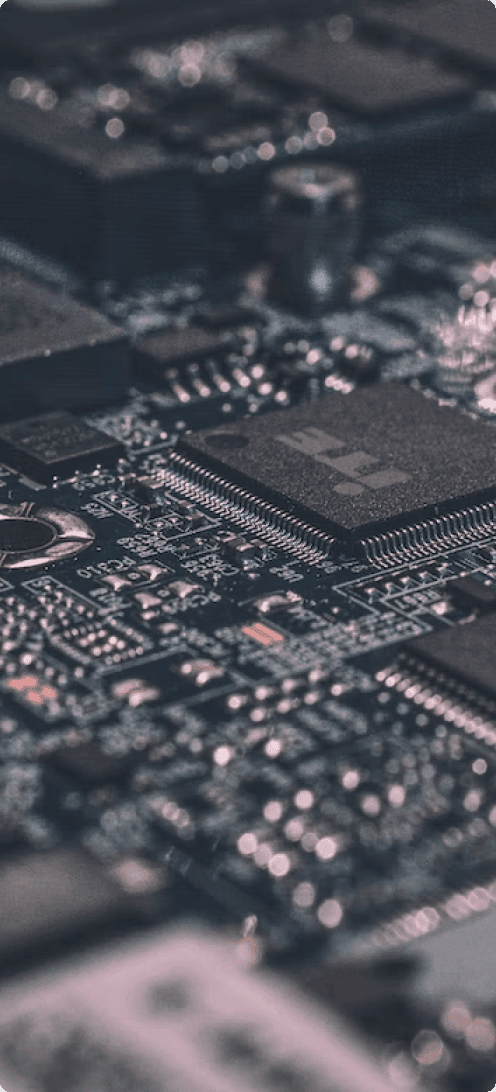Competent computer scientists who are thinking logically and critically, able to continue learning the advances of knowledge and technology in computing and informatics, having international awareness, communicating effectively in English, and having the Sampoerna University DNA: leadership, entrepreneurship, social responsibility.
Talk to the computer in its language so you can make it do what you want it to do

Faculty of Engineering & Technology
Computer Science
Computer Science graduates will be able to adapt to new technologies and new ideas in computing. Computer Science program spans a wide range, from theoretical and algorithmic foundations to developments in new areas such as Internet-of-Things (IoT), robotics, intelligent systems, cyber-security, and others.
Computer Science graduates analyze, design, and develop all types of computer systems, from systems infrastructure (operating systems, communications networks, etc.) to application technologies (mobile apps, web applications, databases, etc.). The work of computer scientists can be grouped into the following categories:
- They design and implement software. They take on various programming jobs. They also supervise other programmers, keeping them aware of new approaches.
- They devise new ways to use computers. Progress in the computer science areas of networking, database, and human-computer-interface enabled the development of the World Wide Web. Researchers are working with scientists from other fields, e.g. to make robots become practical and intelligent aides, to use databases to create new knowledge, and to use computers to help decipher the secrets of DNA.
- They develop effective ways to solve computing problems. For example, computer scientists develop the best possible ways to store information in databases, send data over networks, and display complex images. Their theoretical background allows them to determine the best performance possible, and their study of algorithms helps them to develop new approaches that provide better performance.
- Graduates will be highly-sought after by employers and earn good starting salaries. Our graduates can expect to gain employment as information technology engineers, analysts, administrators and programmers.
Competencies to achieve:
- Algorithms
- Computer Arcitecture and Organization
- Computational science
- discrete structure
- HCI – Human Computer interaction
- information security
- information management
- intelligent systems
- networking and communication
- operating systems
- programming
- software development
- software engineering
Career Pathways
Potential career pathways for graduates include but is not limited to:
- software/applicaton developers
- game developers
- computer systems analysts
- computer systems engineers
- computer systems administrators
- computer network engineers
- computer network administrators
- database administrators
- business intelligence analysts
- web systems developers
- web administrators
Vision & Mission
Vision
To become an established Computer Science study program whose graduates are equipped with competitive skills sets in the field of computing, strong moral character, are entrepreneur minded, are socially responsible in building a more prosperous and globally competitive Indonesia by 2030.
Mission
- Improving the quality of higher education in the field of Computer Science based on research and innovation in order to increase the nation’s competitiveness.
- Improving the quality of research and innovation as well as conducting publications as an effort to develop Computer Science by prioritizing values, ethics, norms, and culture.
- Improving the quality of community service as an effort to apply and develop computer science to society based on research and innovation.
- Improving the quality of governance in managing the Computer Science Study Program.
PEO & PLO
Program Educational Objectives
- Graduates will be able to analyze and design computer systems with logical, computational, and critical thinking, to contribute in solving computational problems.
- Graduates will be able to act and behave in an ethical and professional manners and to recognize the value of diversity and sustainability in the society.
- Graduates will be able to demonstrate the capacity for lifelong learning.
Program Learning Outcomes
- Intellectual understanding and ability to apply basic mathematics and computer science theory.
- Ability to have a critical and creative perspective in identifying and solving problems using computational thinking.
- Use relevant skills in learning areas of computer science to increase productivity.
- Demonstrate a commitment to ethical and professional behavior in the workplace and daily life.
- Ability to communicate effectively with stakeholders from diverse backgrounds.
- Learn new models, techniques, technologies, and tools to apply effective self-improvement for life (lifelong learning).
- Demonstrate interpersonal skills as part of a team, including leadership skill, in delivering quality results/solutions.
- Apply entrepreneurial skills in the field of information technology.
Laboratories
Laboratories in SU are common facilities, i.e. they are shared by multiple programs.

Graduate Profiles
Computer Science
+Bachelor of Computer Science (S1)
Degree Plan
